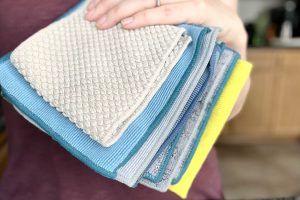The Benefits of Clean Sleep: Improving Your Health and Well-being…
The Benefits of Clean Sleep: Improving Your Health and Well-being…
In our fast-paced world, where sleeplessness is often seen as a badge of honor, the concept of clean sleep has emerged as a new trend in nocturnal wellness. Clean sleeping emphasizes the importance of prioritizing sleep for the sake of our health and creativity. In this article, we will explore the benefits of clean sleep and provide practical tips on how to adopt this approach to improve your overall well-being.
Understanding Clean Sleeping
Clean sleeping has gained popularity thanks to wellness enthusiasts like Gwyneth Paltrow and her wellness coach, Dr. Frank Lipman. According to Paltrow, clean sleeping is as crucial as clean eating when it comes to maintaining optimal health. It involves prioritizing sleep and adopting specific habits and routines that promote restful and rejuvenating sleep.
Dr. Lipman recommends various practices for clean sleep, such as massaging your feet before bed and practicing Yoga Nidra, a form of meditation known as “psychic sleep.” Additionally, using a copper-infused pillowcase is recommended to enhance sleep quality. While these practices may work for some, it’s important to remember that clean sleeping is a personalized approach, and not everyone may benefit from the same routine.
The Science Behind Clean Sleep
Clean sleeping is not just a passing fad; there is scientific evidence supporting its benefits. Research has shown that sleep plays a crucial role in problem-solving and creativity. During sleep, our brains form connections between memories, enabling us to imagine and plan for the future. Studies conducted at Georgetown University have indicated that naps, in particular, activate the right hemisphere of the brain responsible for creative thinking.
By adopting clean sleep practices, you can improve your cognitive function, enhance problem-solving abilities, and boost your overall creativity.
Preparing for a Successful Night’s Sleep
To achieve clean sleep, it’s essential to prepare your body and mind for a restful night. Start by creating a bedtime routine that allows you to gradually shift from an active state to a relaxed state. Dimming the lights an hour before bed, taking a warm bath, listening to calming music, and practicing relaxation exercises can all help signal to your body that it’s time to sleep.
It’s also important to minimize external sources of light in your bedroom, as even small amounts of light can disrupt your circadian rhythm. Cover or move any sources of light, such as alarm clocks or charging indicators, and consider using dark shades or drapes to block out external light.
The Importance of Sleep Hygiene
Clean sleep is closely linked to good sleep hygiene. Sleep hygiene refers to the practices and habits that promote quality sleep. It’s important to limit daytime naps to 30 minutes, avoid caffeine close to bedtime, and steer clear of foods that can disrupt sleep, such as spicy dishes, citrus fruits, or fizzy drinks.
Signs that your sleep hygiene may need improvement include frequent sleep disturbances, daytime drowsiness, and difficulty falling asleep. By implementing good sleep hygiene practices, you can optimize your sleep quality and feel more refreshed and energized during the day.
Dressing for Optimal Sleep
What you wear to bed can impact the quality of your sleep. The National Sleep Foundation recommends wearing breathable fabrics like cotton, silk, or bamboo, or even opting for sleeping naked. These fabrics help regulate body temperature, allowing for better melatonin and growth hormone production, which are essential for repair and rejuvenation during sleep.
A study conducted at the University of Amsterdam found that lowering skin temperature can increase the depth of sleep and reduce the number of times you wake up during the night. So, if you’re looking to improve your sleep quality, consider adjusting your sleepwear choices.
Harnessing the Power of Dreams
Dreams play a significant role in our sleep cycles and can provide valuable insights into our subconscious minds. Technology has made it easier to track and analyze dreams, providing opportunities for better understanding and interpretation. Websites and apps like DreamsCloud and Shadow: Community of Dreams allow users to analyze their dreams and even share them with others around the world.
By exploring your dreams and seeking input from others, you can gain deeper insights into your subconscious thoughts, emotions, and desires. This can lead to increased self-awareness and personal growth.
Clean sleeping offers numerous benefits for your health and well-being. By prioritizing sleep, adopting healthy sleep habits, and incorporating relaxation techniques into your bedtime routine, you can experience improved cognitive function, enhanced creativity, and overall better physical and mental health. Remember, clean sleep is a personalized approach, so find what works best for you and enjoy the transformative power of a good night’s sleep.
Nikken’s Kenko Clean Sleep Options…
Disclaimer: The information provided in this article is for informational purposes only and should not be considered medical or professional advice. Please consult with a healthcare professional before making any changes to your sleep routine or lifestyle.
Contact Pat for a free consultation!
Join / Shop… Nikken
Norwex
About Pat M Chin
Pat M Chin has common sense solutions for water, sleep, nutrition, support and balance, which place the power over your health back into YOUR HANDS.
















